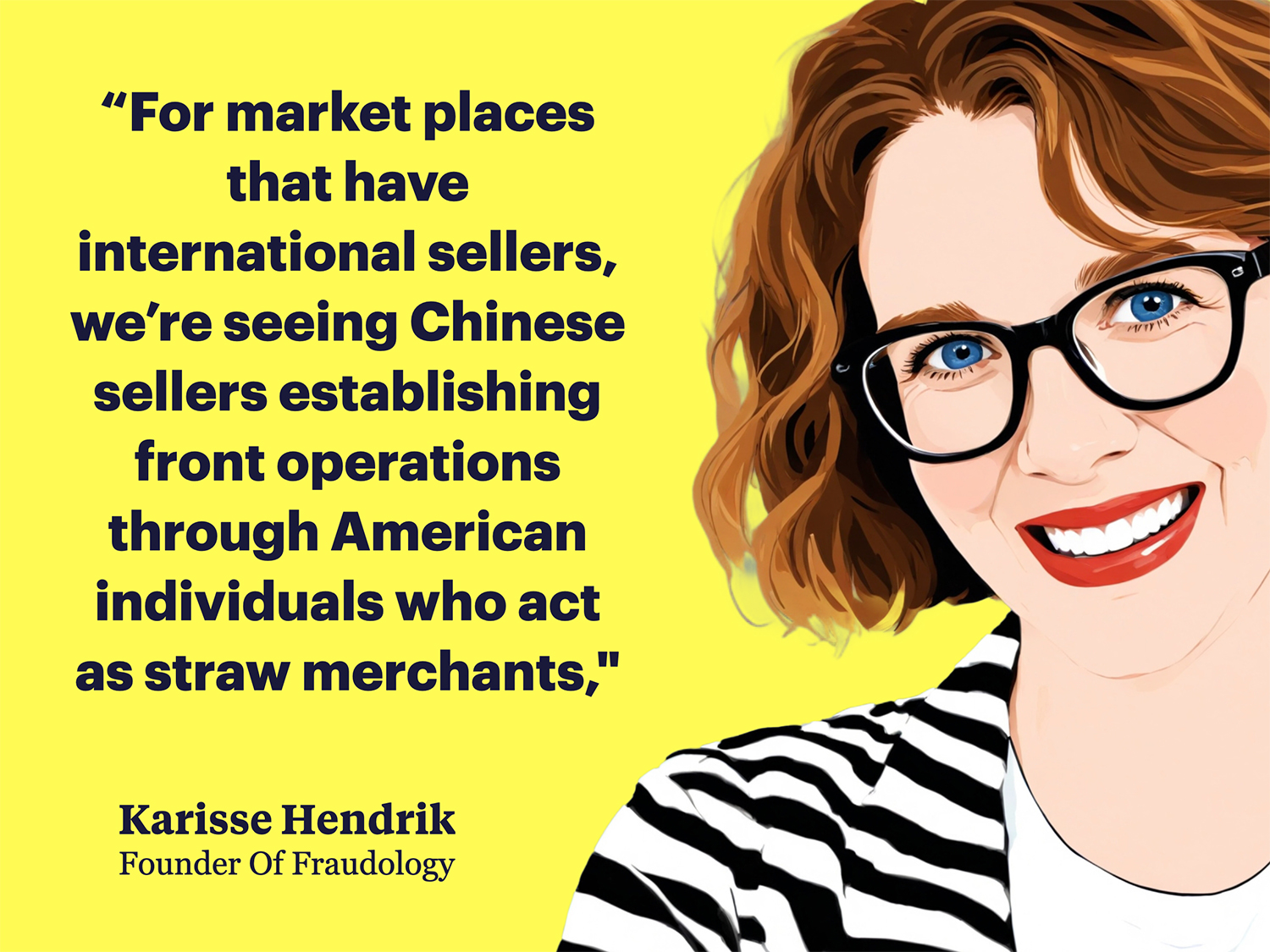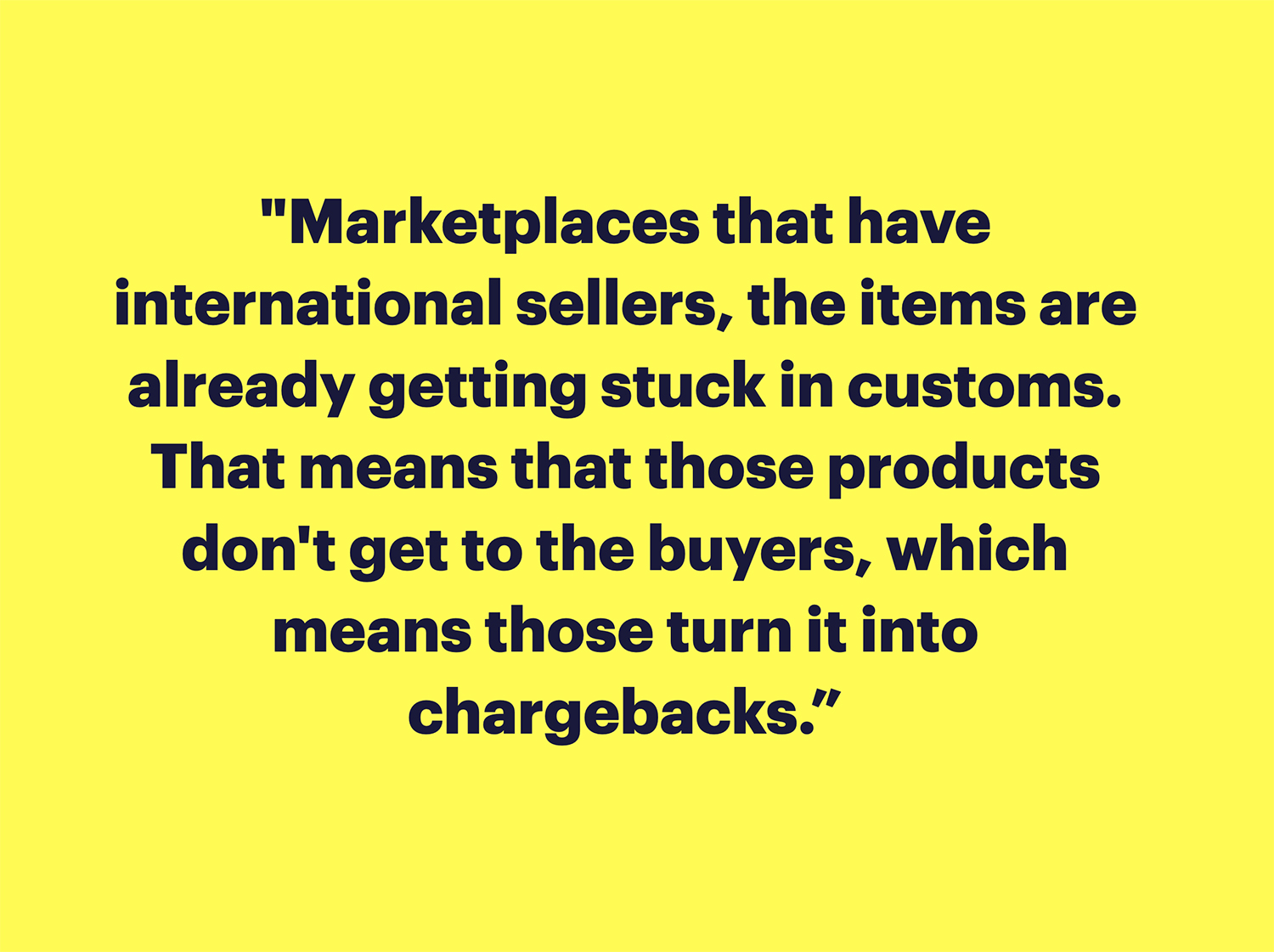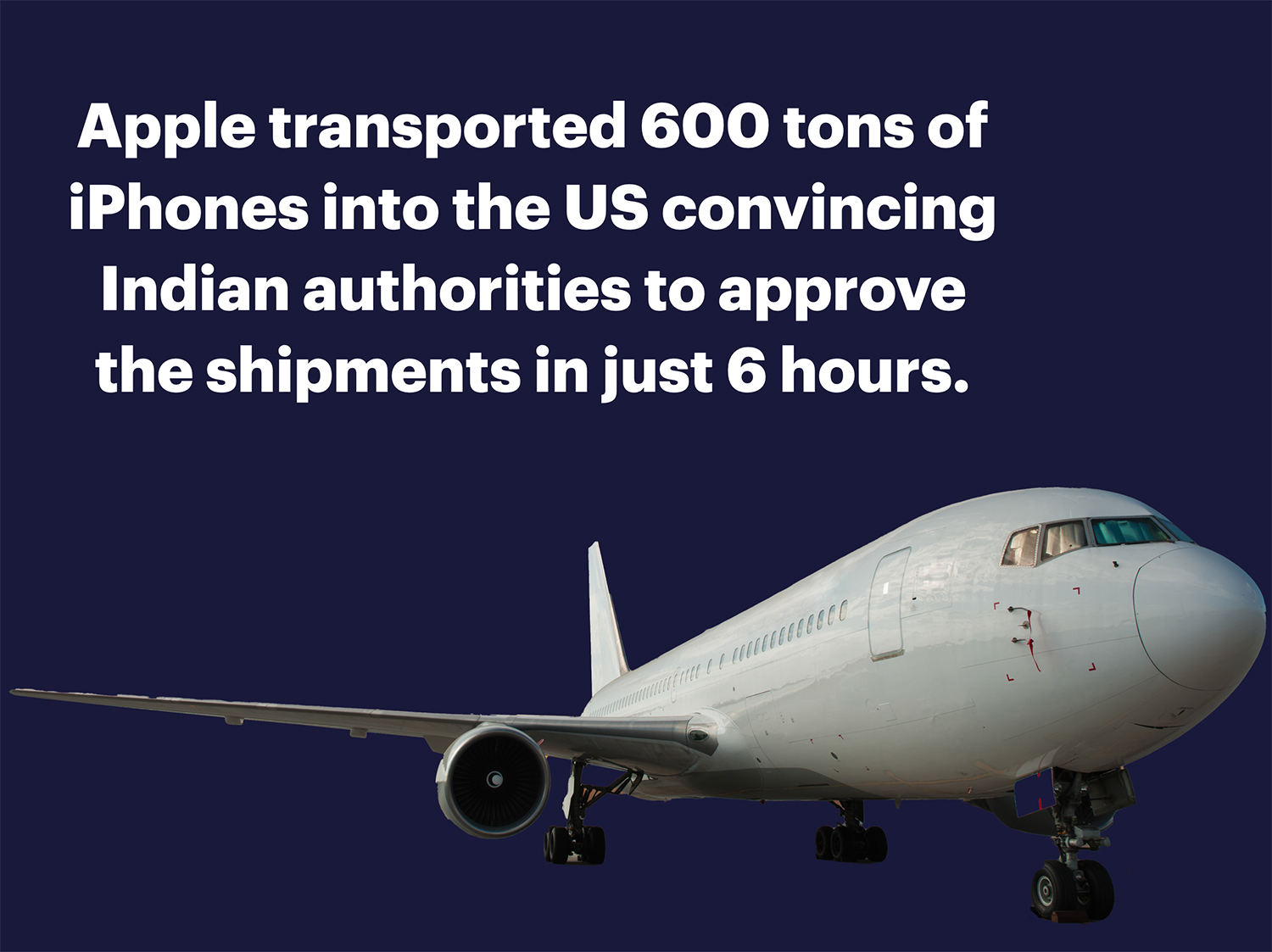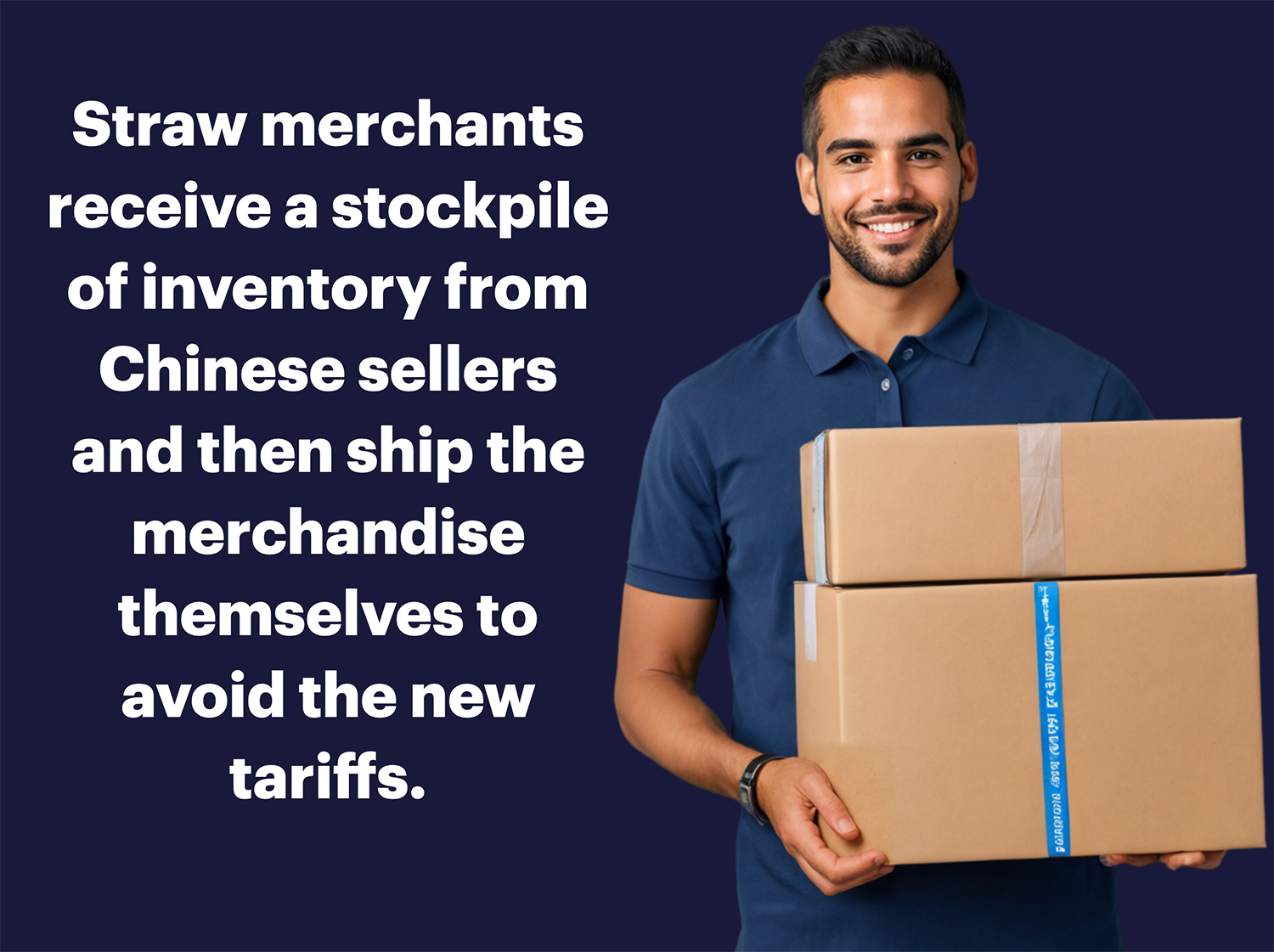Americans are being recruited by Chinese merchants to serve as front operations for overseas businesses trying to avoid steep import tariffs.
That, and a host of other tariff-dodging schemes are rapidly emerging in the merchant world, according to fraud expert Karisse Hendrick.
She uncovered the trend after conversations with dozens of retail executives grappling with the aftermath of the recent 125% tariffs on Chinese goods.

It was during a recent industry call that those executives quickly shifted conversations from discussing fraud tools to something far more urgent that have been keeping their teams busy – tariff workarounds.
“People don’t want to pay the tariffs”, Hendricks explains, “As they try to find every way to dodge them, online merchants fraud departments are getting overwhelmed with the array of workarounds they are using.
Some are fraud, some are exploits, some violate terms of service, and others are just old-fashioned stock-piling before the tariffs take effect.
Here are some of the latest challenges they report.
#1- Custom Delays Are Triggering Rising Chargebacks
Because of the new tariffs, many customers shipments are getting stuck in customs. And thats also straining retailers systems.
“Marketplaces that have international sellers, the items are already getting stuck in customs” Karisse says, “that means that those products don’t get to the buyers, which means those turn it into chargebacks,”.

The bottleneck is causing chargeback fraud and refund fraud for international sellers. When products can’t clear customs quickly enough due to increased scrutiny, impatient customers file for refunds or initiate chargebacks even though their items are still in transit.
#2 – A Wave Of Electronic StockPiling Triggers Fraud Systems
Stockpiling isn’t necesssarily fraud, but its impacting retailers fraud departments. Their fraud systems are flagging for a spike in purchases for laptops and other electronics. These purchase look like fraud, but they are actually legitimate people who are stockpiling expensive goods.
Consumers and resellers are stockpiling these items before expected price increases take effect.
Even tech giant Apple has engaged in stockpiling, chartering six cargo planes to airlift approximately 1.5 million iPhones (600 Tons) from India to the United States in a last ditch effort to avoid the 125% import fees.
They went to extraordinary lengths to get them out, convincing Indian airport authorities to slash customs clearance times from 30 hours to just six hours so they could get the iPhones.

#3 – Chinese Sellers Creating Straw Merchants In The US
Marketplace platforms are battling violations of their terms of service by Chinese sellers that are shifting inventories into the US.
Chinese sellers are doing that by trying to establish U.S.-based operations using “straw merchants”. These straw merchants act as domestic fronts for Chinese businesses, helping them avoid tariff payments.
The sellers are shipping large amounts of inventory to those US based straw merchants who will sell those goods over time avoiding tariffs. As the goods are sold, the straw merchants keeps a cut and sends the rest to China.

#4 – Canadian Based Account Takeovers Rising
Retailers are also reporting a spike in Account Takeover Fraud (ATO) in Canada. They believe fraudsters are hijacking those Canadian customer accounts because of their proximity to the US border.
Rather than creating new accounts, criminals are breaking into Canadian user accounts to take them over and place orders for products that will ultimately reach U.S. destinations.
This sophisticated workaround may involve drop-shipping to Canadian addresses before rerouting merchandise to US addresses.

#5 – Freight Forwarding Services Surge 125%
The 125% tariffs go both ways. So American goods and supplies are very expensive in China, and that has spawned a big increase in freight forwarding.
Retailers are reporting a 20-25% increase in freight forwarding services since the tariffs were announced.

“There are a lot of retailers where if their product in the U.S. is $100 here in the US, you could get $400 or $500 for that in China or elsewhere”, Hendricks says. “Resellers are taking advantage of the international market by buying in bulk in the U.S. and shipping it themselves to China, Japan, or Vietnam where they’ll resell it on an eBay-like service for four or five times as much. They’re trying to get products American products over as soon as possible”
Its All About Cause And Effect
The new 125% tariffs are straining fraud departments and retailers risk teams. What once triggered fraud alerts as suspicious behavior – bulk laptop purchases, unusual shipping routes, Canadian account use are now commonplace among sellers trying to dodge tariffs.
With the tariffs, its no longer business as usual at retailers as fraud fighters find themselves on the front-lines battling a host of new exploits.



